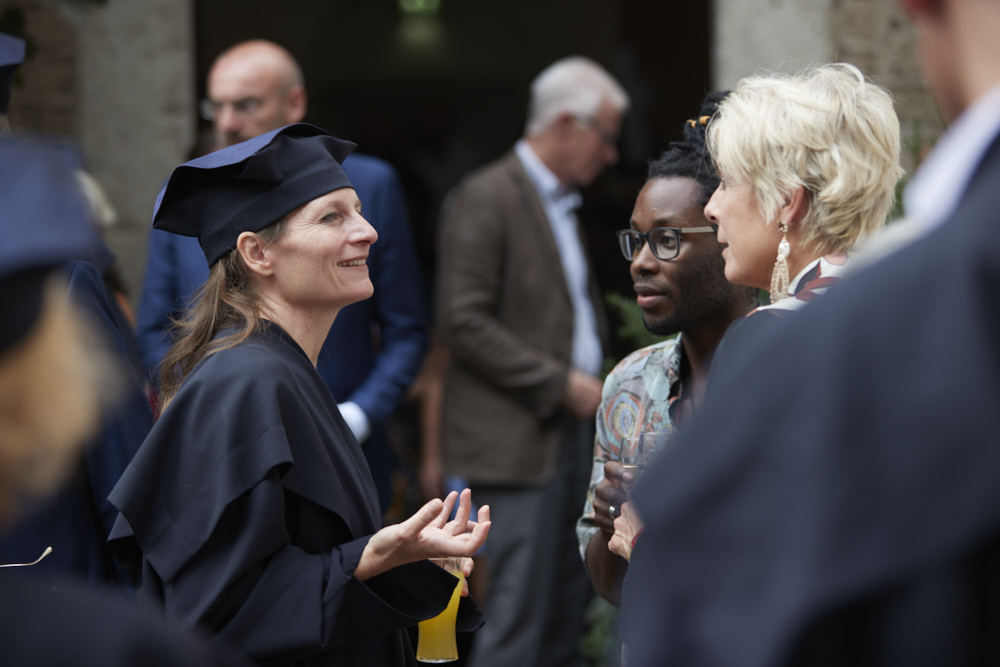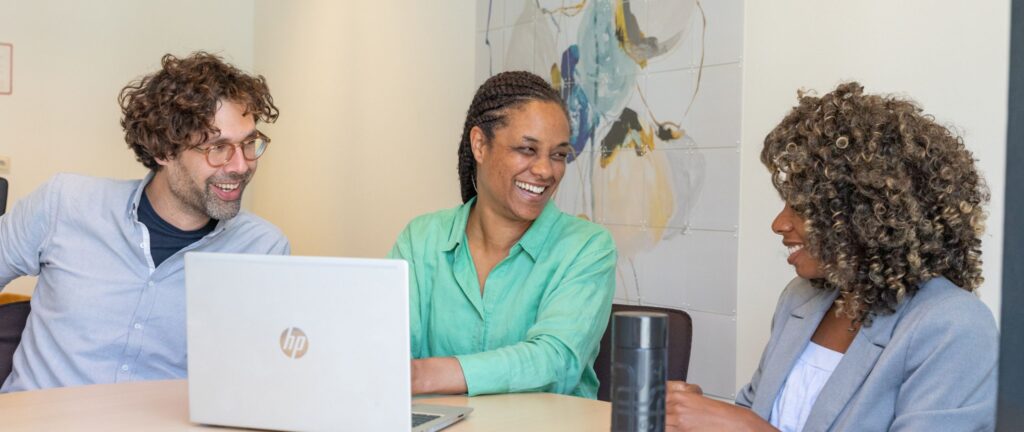Knowledge Hub on Meaning and Spiritual Care
- Period: October 2021 – December 2024
- Status: completed
The knowledge hub (Kenniswerkplaats) focuses on increasing awareness of meaning and professionalising spiritual care at home and is funded with the help of the ZonMw programme Meaning and Spiritual Care (Zingeving en Geestelijke verzorging).
On 1 October 2021, the University of Humanistic Studies, together with the University of Groningen, the Protestant Theological University and 12 other social and scientific partners, launched a national Knowledge Workshop on Meaning and Spiritual Care. As of 1 October 2022, the Knowledge Hub has been expanded to include Care for Meaning at Home, with seven new partners joining. The workshop focuses on bringing together and developing knowledge about meaning, professionalising spiritual care at home (GV Thuis) and caring for meaning in primary care and the social domain (ZvZ Thuis). The project is funded with the help of the ZonMw programme Meaning and Spiritual Care.
The Knowledge WorksHub hop on Meaning focuses on four activities:
- building a knowledge infrastructure;
- knowledge development on specific themes in learning networks;
- conducting impact research in GV Thuis and overarching research within ZvZ Thuis
- further development of expertise in primary care and the social domain.
To this end, the knowledge and experience of all kinds of relevant parties are brought together. Researchers, professionals and clients work together to develop knowledge for education and professional practice. This is of great added value to the developing field of meaning and spiritual care in the home situation.
Knowledge infrastructure
The Knowledge Hub strengthens cooperation between educational, research and practical organisations in the field of meaning and spiritual care. The various participating organisations jointly draw up a research agenda for spiritual care at home, as well as for other professions that provide care for meaning in primary care and the social domain. At the same time, work is being done to create a central repository for various types of knowledge.
Learning community
The learning community consists of 16 learning networks that develop knowledge and practices around a theme relevant to spiritual care at home. The topics of the learning networks are:
- people with intellectual disabilities who live independently in the neighbourhood;
- moral distress among veterans;
- interprofessional collaboration;
- spiritual care in the Groningen earthquake area;
- philosophical diversity and interphilosophical spiritual care;
- hope among people with chronic physical or psychiatric conditions;
- palliative care for children;
- low literacy and poverty;
- interprofessional meaning-based care;
- homeless people with criminal records;
- dementia care;
- meaningful waiting time;
- care for meaning in drop-in centres;
- care for meaning for people with a migrant background;
- students and young professionals;
- young people in Limburg and North Brabant.
GV Thuis impact study
The impact study focuses on the goals, needs, working methods and outcomes of spiritual care in the home situation. Existing data from research into spiritual care at home and data from the learning networks are used to better identify the needs of clients, the interventions of spiritual carers and the outcomes thereof. All this contributes to a better understanding of the practices of spiritual care at home and the benefits thereof for clients and society.
Research into Care for Meaning
The overarching research in the expansion of the Knowledge Hub focuses on three areas: needs for meaning, differentiation and expertise development.
Sector projects
The sector projects are aimed at developing and further developing expertise in the field of meaning in care and welfare. These are projects for seven professional groups, focused on Care for Meaning in the home situation. In each sector project, professional associations, practical institutions, knowledge institutions and client representatives work together on three components:
- A needs assessment regarding meaning among clients/patients and professionals.
- A knowledge synthesis.
- The (further) development of an educational module.
Researchers
- Prof. Gaby Jacobs (project leader and coordinator), Professor of Spiritual Care, University of Humanistic Studies
- Prof. J.K. Muthert, adjunct professor, University of Groningen
- Dr. H.J. Olsman, associate professor, Protestant Theological University
- Dr. C. Schuhmann, assistant professor, University of Humanistic Studies
- Dr A. Visser-Nieraeth, university lecturer, University of Groningen
- Ir. V. Vaarten, innovation and development WMO Radar
- Jorika Baarda, project manager, University of Humanistic Studies
Partners
- Universities: Protestant Theological University, Radboud University, University of Groningen, Tilburg University, University of Humanistic Studies (lead partner), Vrije Universiteit Amsterdam
- UMCs: Leiden University Medical Centre, Radboud UMC, UMC Utrecht
- Universities of applied sciences: Fontys University of Applied Sciences, Rotterdam University of Applied Sciences, VIAA University of Applied Sciences, Windesheim University of Applied Sciences
- Professional associations: Association of Spiritual Caregivers (VGVZ), V&VN, Association of Dutch Volunteer Organisations (NOV)
- Practical organisations in healthcare and welfare: Centre for Life Questions Amsterdam-Diemen (NPZA), Evinas Health Centre, Youth Assistance Friesland, ‘t PGCJ, Project Group GV Thuis/Agora, WMO Radar
(Co-)funding
ZonMw, programma Zingeving en Geestelijke verzorging (Meaning and Spiritual Care programme).
Also see
- Website Kenniswerkplaats Zingeving
- LinkedIn-page Kenniswerkplaats
- ZonMw-programma Zingeving en Geestelijke Verzorging
Contact
Projectmanager Jorika Baarda, j.baarda@uvh.nl
Voorzitter prof.dr. Gaby Jacobs, g.jacobs@uvh.nl
Algemeen: info@kenniswerkplaatszingeving.nl


